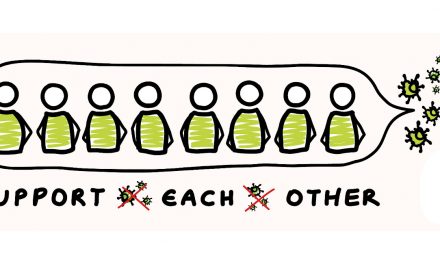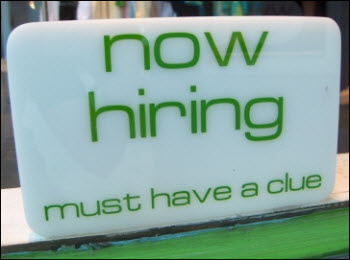By Steve Moran
There has been a rash of exposes about senior living in the press. Every one of them has told horrific and true stories about terrible things that have happened to residents who paid a lot of money each month to be protected and cared for.
It, of Course, Is Not the Whole Story
The terrible things that happened are outliers and not the norm for senior living and we know there are always outliers. People die when they shouldn’t have in the best hospitals in the world. Airplanes crash and people die in spite of all that is done to keep that from happening.
These stories ignore the critical reality that when seniors live alone at home, the risk factors for poor quality of life and dying early are huge . . . way beyond any risk factors that might be associated with moving into senior living.
AND YET . . .
I was drafting a story about how to improve working conditions for senior living teams by looking at the most significant employee complaints at Glassdoor. I looked at the comments for about a dozen organizations, sorted by the most recent complaints first. In most cases, I found a kind of bell curve distribution of star ratings so a smattering of 1s, 2s up to 5s. But for a few companies, I found a really startling and disturbing pattern.
It was 1 star after 1 star, after 1 star, followed by a bunch of 5-star ratings. And curiously, those 5-star marks always clustered around a very narrow range. While I can’t prove it, I believe what happened was that someone took a look, was horrified about the terrible comments and solicited a bunch of positive reviews to balance them out. No blame for doing that, I would recommend doin the same except . . . a long list of 1-star reviews suggests there is a real problem.
We Need to Do Better — We Need to Be Honest
In senior living we do have a very real staffing problem. We have way too many people working in senior living and hating it, only working in our field because they can’t find better jobs or don’t have enough initiative to find a better job.
“What do you want to be when you grow up?” The answer a child gives to that question is based on some organic appeal to that occupation. Something calls to the child about being a teacher, a nurse, a firefighter. “I like explaining things to others”. “I like taking care of people”. “I like saving people from trouble”.
So much can happen to a person in their lifetime that creates a more desperate job search to take over from that childlike career connection. Getting paid may become the goal, period. It’s the reality of the world we live in.
Unfortunately, when people’s work is not connected to the purpose of the organization disarray occurs. There is no cohesive group contributing to the mission of your organization. Instead, there are individuals working towards their own end . . . to get paid, to get health benefits . . . it’s just a J-O-B to them. A job that is easy to walk away from.
In senior living, this is terrible for the residents, the organization, and the entire field.
Our field is driving away caring people. Caring people are now pumping gas and making lattes because culture is in crisis in senior living. But a strong and healthy culture, where employees truly live the values of the organization, and bring their own personal values to their work, attracts caring people who want to be caring for others.
We hear it all the time in our culture analysis work with organizations from all over the country. It’s getting harder to attract and retain the right people. Culture is at the core of this dilemma. But, thankfully we know first hand that it’s a problem with a fix.
-Sheila O’Grady, Drive
This means they are doing a crappy job for residents and hurting your bottom line. Now, it is likely not most of your team members, but even if it is only 15% of your team members who hate working for you, what is the cost of that impact? Let me suggest a few things:
-
- They are more likely to call in sick for any reason or no reason at all
- They are the ones that are least likely to leave because they probably can’t get a better job
- They won’t recruit their friends to come work for you or if they their recruits will not be ones you want
- They will do just enough work to get by
- They will neglect your residents
- They will steal from you
Fixing It
Take a look at my recent article, “9 Reasons Your Team Members Hate Working For You . . . That You Can Fix”. Those 9 things are a great place to start. Spend time doing leadership training at all levels, focusing on executive directors and department heads.
We can be as attractive, no . . . more attractive . . . a place to work than Google, Facebook, or Starbucks.
The difference between a 1-star rating and a 5-star rating is happy vs. unhappy. It’s really quite simple but the reason is not an easy one to solve, and here’s why. Logically, there are happy and engaged people in every organization and when encouraged to share their opinion on social media some will gladly give that 5-star rating.
On the other hand, the 1-star raters determine on their own to tell the world how bad the company is. So, why is it that they are compelled to go outside of the company and share such awful things on social media? My suspicion is because they didn’t feel heard within the company.
In my experience, the 1-star raters are people who have been terminated from the company or were about to be. How organizations handle performance issues is the root of the problem. Often the affected employee doesn’t feel anyone is truly understanding or listening to what he/she has to say, and when the disciplinary actions commence most companies use this time as the precursor to termination vs. a true effort to help habilitate the person. This often happens because the manager has become too frustrated and is no longer thinking or acting objectively.
How we “exit” employees needs as much attention as how we “enter” employees. They both have negative ripple effects when done poorly!
– Veronica Barber, Benchmark Senior Living









Thanks Steve! I believe that there are different creative ways to get our staff involved, as I have been told that the stigma of it being a bad thing to job hop is over…and that older generations used to stay at one job for several years and they (younger staff) like to move around and try out different places. It really helps me to understand the different generations to listen and have relationship with people who are different than me, particularly in age. Many times older people mock young people and that causes a lack of teamwork and trust. Also, I have had a blast being a Staff Development or Employee Builder upper…not by babying, but by building their team skills. Keep up with you unique work of challenging those of us who have worked in or volunteered in this healthcare/senior life industry forever…Me? Since the 70s…figure it out…I am currently considered Elderly at 70…time flies for sure…lets get out of this box folks…be unique for real, not for marketing purposes only…we old people do see through it. In fact, marketing staff are often young and are not mentored by the residents or their elders…now that would be a great concept…Anyway can you tell that I am a presenter and a storyteller and that my profession has been thinking, creating and talking…Is anyone listening to Steve or olderly people? (old early: earlier than I expected: